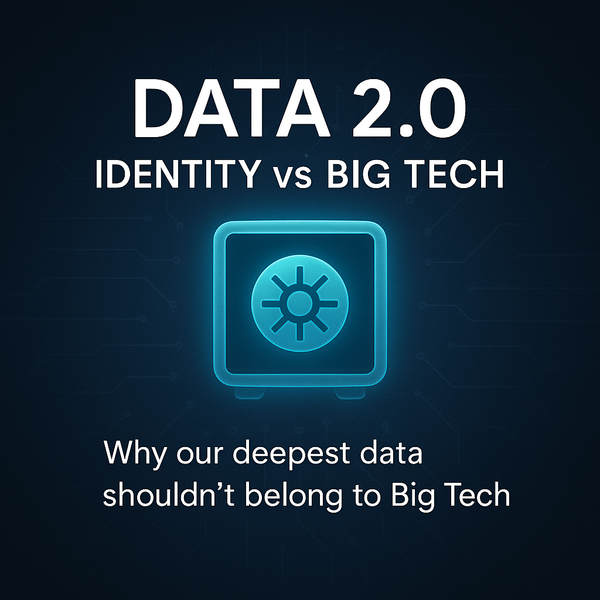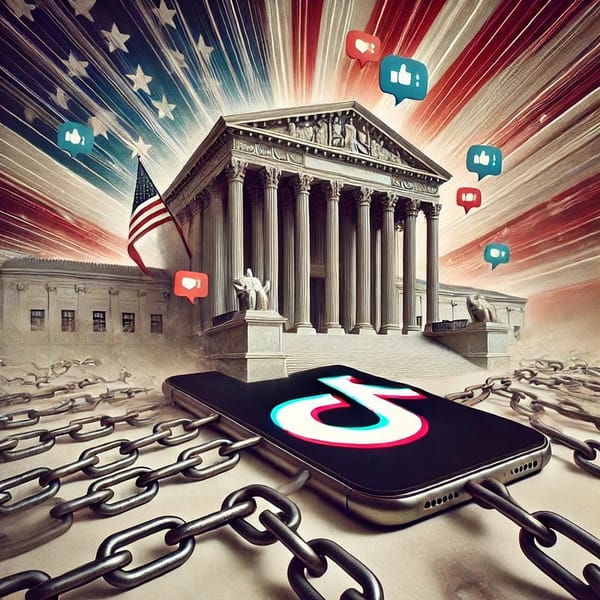
Who Owns Data 2.0?
We’ve been through this before. In the early days of social media and digital advertising, companies convinced us to trade small conveniences for access to our personal data. At first it was clicks, likes, and browsing habits. Soon, every search query, purchase, and location ping became part of an enormous behavioral profile-sold, shared, and optimized to drive engagement and revenue. That was Data 1.0: companies monetizing what we do.
With AI, we’re entering Data 2.0—and it runs much deeper. When we interact with these systems, we aren’t just handing over clicks and metadata. We’re handing over pieces of ourselves. Our questions, fears, creative ideas, medical concerns, financial plans, half-formed thoughts, and private reflections all flow into a model that never forgets.
This is more than data. It’s context-rich, high-resolution insight into who we are and how we think. It’s not just what we do, it’s who we are.
And that’s where the concern sharpens: if tech companies could build trillion-dollar businesses by monetizing surface-level behavioral data, what happens when they gain access to this deeper layer of human identity? The incentive to exploit it is enormous. The risk is that we’ve just opened the door to a new kind of extraction, one that doesn’t commodify our actions, but our very selves.
My Vision: Personal, Portable, and Private
Right now, when we interact with AI, the assumption is that everything we reveal belongs on someone else’s servers. That’s the deal: your questions, your history, your preferences all become part of a corporate system you don’t control. But what if that assumption were wrong? What if the baseline shifted so that you held the keys?
Imagine a digital vault that you own outright. It could live locally on your own machine or in a private, encrypted cloud under your control. Inside it are the things you’d never want to casually hand over to a company: medical history, financial records, family context, creative work, and the subtle patterns of how you think. Instead of passing that directly into an AI provider’s black box, you store it in your vault.
When an AI tool needs context, you don’t hand over the vault—you hand over a key. Temporary, scoped access. Like giving a guest a smart lock code that only works once, or only for a specific room, and that you can revoke at any time. The AI gets what it needs to be helpful, but it never takes the data with it.
The technical model for this already exists in spirit. Just as OAuth became the universal way apps ask permission to access your Google or Facebook account, we could imagine a standardized “personal memory API” that lets any LLM - OpenAI, Anthropic, Mistral, or even open-source local models - request just the data it needs. You remain the gatekeeper: you can approve, deny, or edit what’s shared, and you have an audit trail of every request.
There are early signals that people want this. Projects like OpenHealthAI, which lets users run medical queries locally without sending data to a corporate server, point to the same concern: privacy at the point of interaction. But the idea here goes further. It’s not about running everything on your own machine. It’s about creating a standardized, user-owned data layer that any AI can plug into. That way, you can use the most powerful models available while still protecting your personal context.
Why This Matters
The benefits of a personal, portable, and private data vault are clear:
- Trust: People will be more willing to share when they know they remain in control.
- Flexibility: Your vault moves with you from one system to another—no vendor lock-in, no fragmented histories.
- Empowerment: Instead of companies owning the deepest layers of your identity, you define the lens through which AI interacts with you.
That’s the shift. From data being extracted from us, to identity being curated by us. From companies monetizing who we are, to individuals owning how we’re seen. If AI is going to be woven into our lives as deeply as it seems, then it’s time to decide: who should hold the keys?





